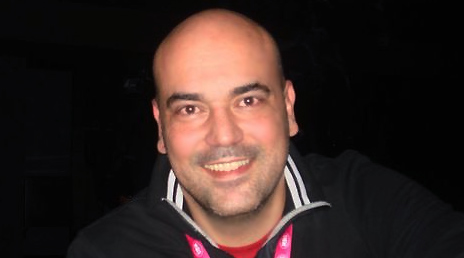Alexis Tsipras, leader of the Coalition of the Radical Left (SYRIZA) is the new Prime Minister of Greece. He has formed a government in coalition with the center-right party "Independent Greeks." Syriza was just two seats short of forming an independent government after achieving an unprecedented victory in the early parliamentary elections in the country on Sunday.
 "What is common between the two parties is that during the election campaigns they both insisted on renegotiating the conditions of the huge Greek debt", says political analyst Dimitar Dimitrov. "A problem for the EU is that Greece is considered “the sick man of the Euro Zone” and election results can give a boost to similar processes in countries like France, Italy, and Spain. In order to implement his program Alexis Tsipras will have to enter into direct confrontation with the European institutions and other European partners of Greece. This opens the door to a number of possible scenarios.”
"What is common between the two parties is that during the election campaigns they both insisted on renegotiating the conditions of the huge Greek debt", says political analyst Dimitar Dimitrov. "A problem for the EU is that Greece is considered “the sick man of the Euro Zone” and election results can give a boost to similar processes in countries like France, Italy, and Spain. In order to implement his program Alexis Tsipras will have to enter into direct confrontation with the European institutions and other European partners of Greece. This opens the door to a number of possible scenarios.”
 "The victory of SYRIZA is not surprising,” says Greek economist Ploutarhos Maridakis. “This is a result of the economic measures taken by the government and the disappointment of the people. All this has had negative effects both socially and financially and the majority of voters decided to radically change the ruling party. I think that the fears and panic presented in media are very exaggerated. I do not expect major changes in the financial policy of Greece during the next year. "
"The victory of SYRIZA is not surprising,” says Greek economist Ploutarhos Maridakis. “This is a result of the economic measures taken by the government and the disappointment of the people. All this has had negative effects both socially and financially and the majority of voters decided to radically change the ruling party. I think that the fears and panic presented in media are very exaggerated. I do not expect major changes in the financial policy of Greece during the next year. "
The bailout program of the international partners of Greece ends in February and if no new agreement is reached, the country could go bankrupt. Alexis Tsipras has said his government will negotiate with EU partners on the country's debt.
"I do not think that a compromise deal over the Greek debt would be reached,” says political scientist Dimitar Dimitrov. “This could trigger similar requests from other countries, which would lead to great tension in the euro area and the whole of the EU. There will be talks but Greece needs to follow agreed bailout schemes in order to receive payments. I guess that when the date approaches Greece will be all over the headlines of media. Mr. Tsipras plans to increase the minimum wage and raise the number of state-paid jobs. There are no financial resources for that and it is not clear yet what will happen. One of the darkest scenarios for Greece is leaving the Eurozone. Probably, this could be realized, but it would be a huge image-problem for Greece."
"It is a bit early to talk about official policy, but the first comments from Greece and abroad show that Europe is ready to postpone payments, but would not reduce the debt,” Ploutarhos Maridakis says. “This is a kind of success, because with a proper financial policy it would allow for some recovery. A SYRIZA candidate said before the elections that they would start printing money, which cannot happen when you are part of the euro area. Not going into the right direction will be a huge mistake. The changes we have made in recent years had to happen. Before elections we who live on the Balkans tend to exaggerate and use populism to win votes but the truth is there is no money.”
The Greek economist is convinced that none of his countrymen wants to leave the Eurozone. "Greek policy will not radically change. Measures must be taken but Greeks are realists. They just want a more socially-oriented policy. The victory of SYRIZA victory could give optimism to other radical parties like the far-right National Front in France and leftist party Podemos in Spain and send Greece into frontal collision with Germany and its other creditors of the euro area. Not to mention that Russia’s courtship of Greece has started to grow, which could also lead to destabilization of the region.
English: Alexander Markov
At today's session of MEPs opening in Strasbourg, the European Parliament will again call for full membership of Bulgaria and Romania in Schengen . The agenda announcement makes clear that the EP will discuss the issue together with the European..
The coalition We Continue the Change-Democratic Bulgaria (PP-DB) , which came second in the October 27 parliamentary elections, has accepted an invitation for negotiations from the first political force - GERB-SDS. GERB leader Boyko Borissov offers..
A new party called Bulgaria Can (Bulgaria Mozhe) was founded today. Its leaders are the political and economics analyst Kuzman Iliev and the former MP from the Vazrazhdane party, Ivo Ruschev. The aim of the new party is to be an alternative for voters..
Bulgaria has emerged from a long political slumber – 81 days after the sixth early parliamentary elections, the National Assembly elected the country's..

+359 2 9336 661
